第8章 CHAPTER II INFLUENCE OF LINCOLN(2)
My childish admiration for Lincoln is closely associated with a visit made to the war eagle, Old Abe, who, as we children well knew, lived in the state capital of Wisconsin, only sixty-five miles north of our house, really no farther than an eagle could easily fly! He had been carried by the Eighth Wisconsin Regiment through the entire war, and now dwelt an honored pensioner in the state building itself.
Many times, standing in the north end of our orchard, which was only twelve miles from that mysterious line which divided Illinois from Wisconsin, we anxiously scanned the deep sky, hoping to see Old Abe fly southward right over our apple trees, for it was clearly possible that he might at any moment escape from his keeper, who, although he had been a soldier and a sentinel, would have to sleep sometimes. We gazed with thrilled interest at one speck after another in the flawless sky, but although Old Abe never came to see us, a much more incredible thing happened, for we were at last taken to see him.
We started one golden summer's day, two happy children in the family carriage, with my father and mother and an older sister to whom, because she was just home from boarding school, we confidently appealed whenever we needed information. We were driven northward hour after hour, past harvest fields in which the stubble glinted from bronze to gold and the heavy-headed grain rested luxuriously in rounded shocks, until we reached that beautiful region of hills and lakes which surrounds the capital city of Wisconsin.
But although Old Abe, sitting sedately upon his high perch, was sufficiently like an uplifted ensign to remind us of a Roman eagle, and although his veteran keeper, clad in an old army coat, was ready to answer all our questions and to tell us of the thirty-six battles and skirmishes which Old Abe had passed unscathed, the crowning moment of the impressive journey came to me later, illustrating once more that children are as quick to catch the meaning of a symbol as they are unaccountably slow to understand the real world about them.
The entire journey to the veteran war eagle had itself symbolized that search for the heroic and perfect which so persistently haunts the young; and as I stood under the great white dome of Old Abe's stately home, for one brief moment the search was rewarded. I dimly caught a hint of what men have tried to say in their world-old effort to imprison a space in so divine a line that it shall hold only yearning devotion and high-hearted hopes.
Certainly the utmost rim of my first dome was filled with the tumultuous impression of soldiers marching to death for freedom's sake, of pioneers streaming westward to establish self-government in yet another sovereign state. Only the great dome of St.
Peter's itself has ever clutched my heart as did that modest curve which had sequestered from infinitude in a place small enough for my child's mind, the courage and endurance which I could not comprehend so long as it was lost in "the void of unresponsible space" under the vaulting sky itself. But through all my vivid sensations there persisted the image of the eagle in the corridor below and Lincoln himself as an epitome of all that was great and good. I dimly caught the notion of the martyred President as the standard bearer to the conscience of his countrymen, as the eagle had been the ensign of courage to the soldiers of the Wisconsin regiment.
Thirty-five years later, as I stood on the hill campus of the University of Wisconsin with a commanding view of the capitol building a mile directly across the city, I saw again the dome which had so uplifted my childish spirit. The University, which was celebrating it's fiftieth anniversary, had honored me with a doctor's degree, and in the midst of the academic pomp and the rejoicing, the dome again appeared to me as a fitting symbol of the state's aspiration even in its high mission of universal education.
Thousands of children in the sixties and seventies, in the simplicity which is given to the understanding of a child, caught a notion of imperishable heroism when they were told that brave men had lost their lives that the slaves might be free. At any moment the conversation of our elders might turn upon these heroic events; there were red-letter days, when a certain general came to see my father, and again when Governor Oglesby, whom all Illinois children called "Uncle Dick," spent a Sunday under the pine trees in our front yard. We felt on those days a connection with the great world so much more heroic than the village world which surrounded us through all the other days. My father was a member of the state senate for the sixteen years between 1854 and 1870, and even as a little child I was dimly conscious of the grave march of public affairs in his comings and goings at the state capital.
He was much too occupied to allow time for reminiscence, but I remember overhearing a conversation between a visitor and himself concerning the stirring days before the war, when it was by no means certain that the Union men in the legislature would always have enough votes to keep Illinois from seceding. I heard with breathless interest my father's account of the trip a majority of the legislators had made one dark day to St. Louis, that there might not be enough men for a quorum, and so no vote could be taken on the momentous question until the Union men could rally their forces.